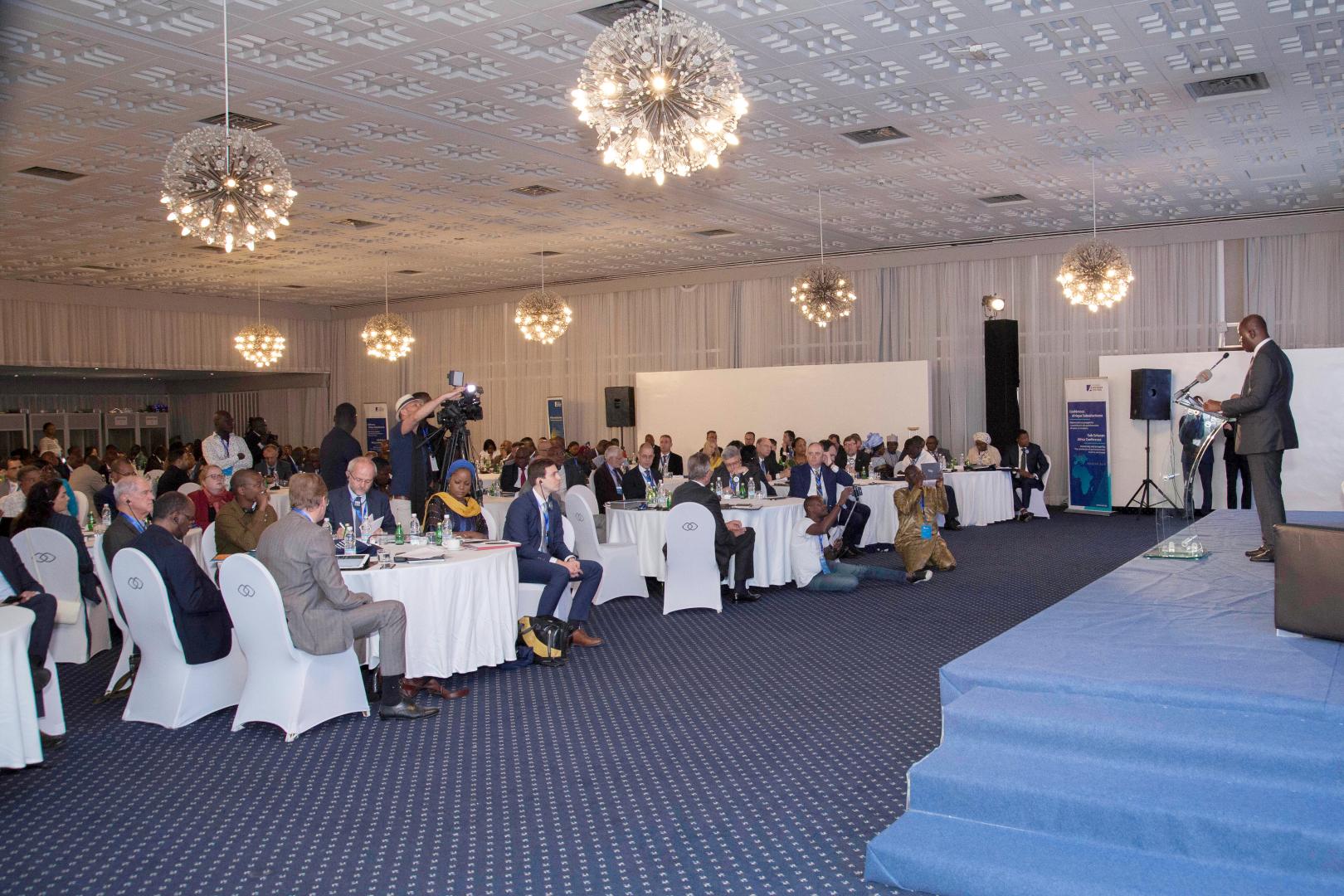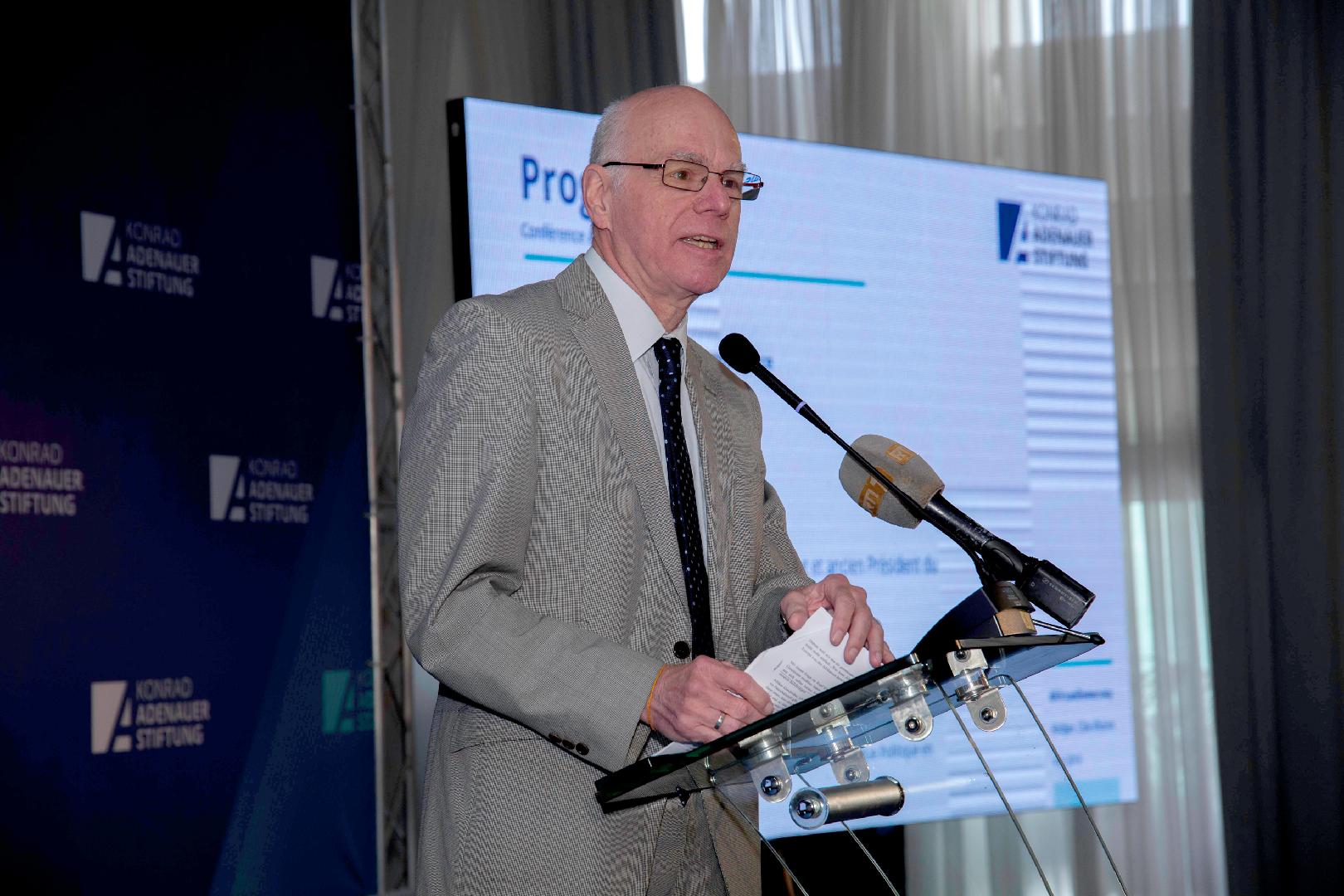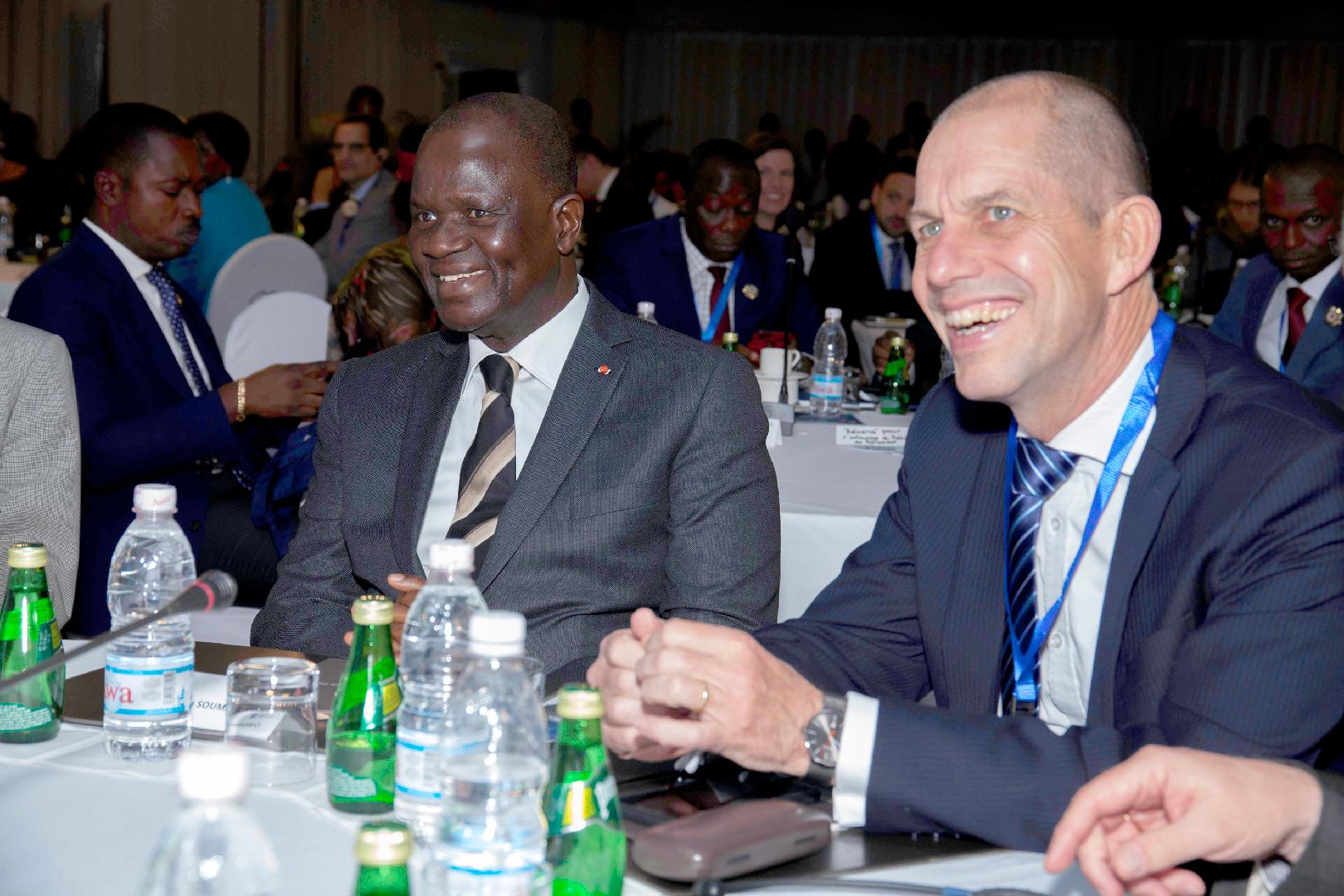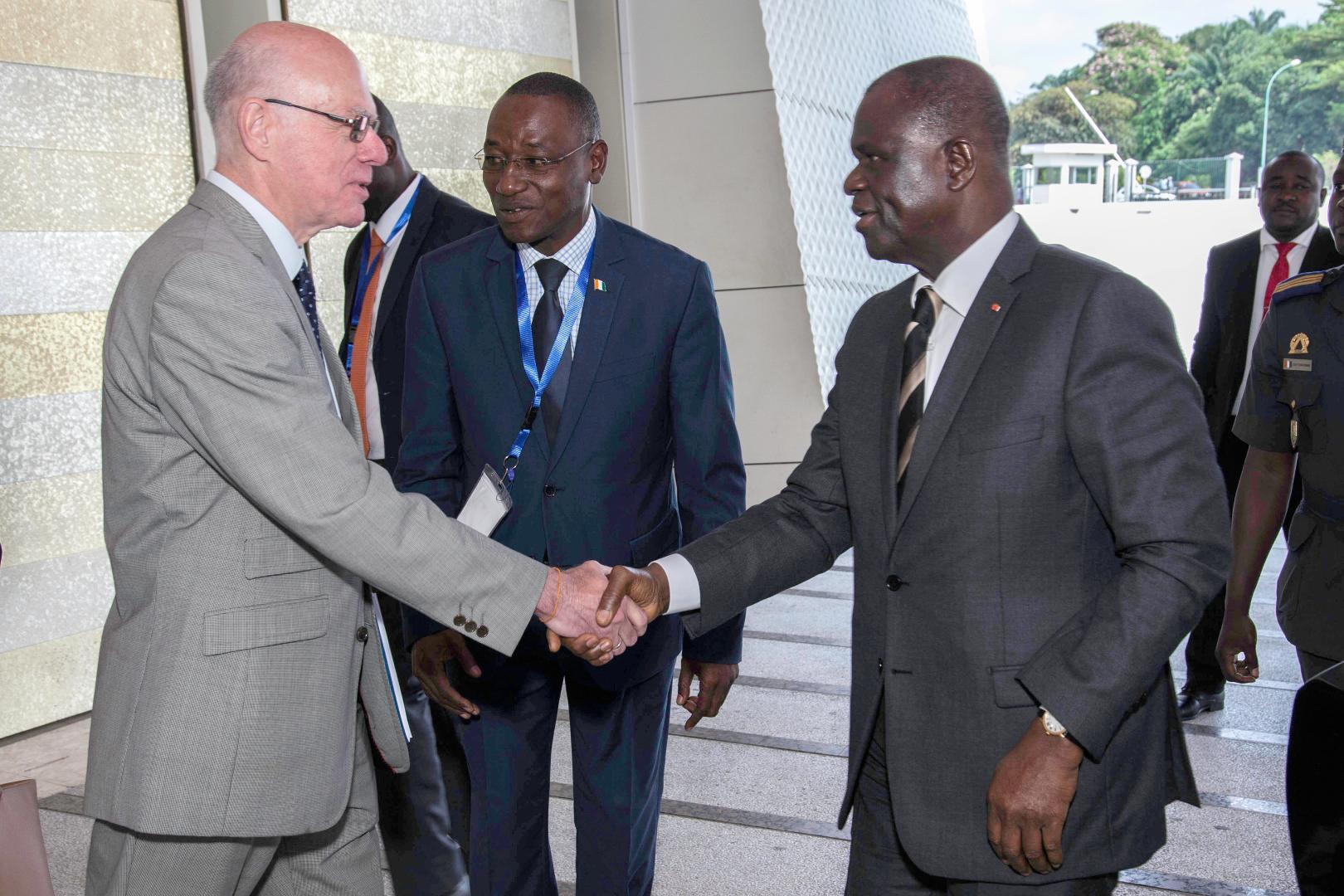In her personalised video message to the conference participants, the German Chancellor Angela Merkel emphasised that "the opportunities for political participation as well as good governance and legal security (...) shape the economic climate of a country". The conference was opened on the second of May by the Chairman of the Konrad-Adenauer-Stiftung and former President of the German Parliament (ret.), Prof. Dr Norbert Lammert and the Ivorian Parliamentary President Amadou Soumahoro. In his opening speech, Prof. Dr Norbert Lammert substantiated the conference's main objective, which was the exchange of information between the African and European Parliaments, as well as enhanced networking among all parliamentarians.
This theme was directly addressed in the first panel by parliamentarians Tundu Lissu (Tanzania), McHenry Venaani (Namibia), Aissata Touré Diallo (Mali) and Rimamnde Shawulu Kwewum (Nigeria). Together with MP Frank Heinrich (CDU), they discussed the relationship between government and parliament as well as current challenges in Africa. In this context, McHenry Venaani highlighted that "African parliaments (...) are representatives of the population and have to satisfy their needs, not the interests of lobbyists, foreigners or the government".
In the second panel, MP Andreas Lämmel (CDU) debated with the MPs Mandiaye Ba (Senegal), Frank Annoh Dompreh (Ghana) and Lutero Simango (Mozambique) about the economic policy challenges in the respective countries, but also on the African continent as a whole, and about measures that could be implemented within the framework of a reform agenda influenced by parliamentarians.
The first day of the conference concluded with a third panel consisting of the MPs Stefan Rouenhoff (CDU), Nico Marchetti (ÖVP) from Austria, Lörinc Nacsa (Fidesz-KDNP) from Hungary and Michel Vialay (Les Républicains) from France. Together with the two commentators Yasmina Ouégnin (independent MP from Cote d'Ivoire) and Norbert Mao (party leader of the Democratic Party in Uganda), the European parliamentarians together with moderator and MP Volkmar Klein (CDU) examined initiatives to strengthen bilateral relations with the countries of Sub-Saharan Africa. One of the core messages was the immense importance of a personal exchange between the representatives of both continents. Scholarship programmes for young people and interparliamentary, cross-continental exchanges. were mainly empahsised as an important tool. The KAS Sub-Saharan Africa Conference has made a significant contribution as it has enabled European and African parliamentarians to gain a better understanding of shared challenges and the need for shared approaches to solutions by getting to know each other personally.
Parallel to the official conference programme, Prof. Dr Lammert met Ivorian decision-makers from politics and business in bilateral talks. With Daniel Kablan Duncan, Vice-President of Coted'Ivoire, Lammert discussed the political situation in the country and European-Ivorian relations. During the meeting, the Vice-President stressed that the instability emanating from the Sahel countries represents an increasing challenge for Cote d'Ivoire too. In this context, he expressed his hope that Europe will develop an awareness that stability on the African continent is also of great interest to European states.
The conference continued on 3 May with two more panels. The first panel on "Democracy and Prosperity - Recommendations from African Political Advisors" was composed of renowned experts Roelf Meyer (Chairman In Transformation Initiative) from South Africa, Prof. Joseph Diescho (former NIPAM Director) from Namibia, Ameha Mekonnen (member of the Constitutional Reform Commission and President of the Human Rights Council) from Ethiopia and Dr. Gilles Yabi (founder of the West African Think Tank WATHI). Based on the discussions of the first three panels, the speakers, commentators Salome Makamba (Tanzania) and MacDella Cooper (Liberia), as well as moderator Christoph Plate discussed the most relevant outcomes of the previous day and developed policy recommendations. In this context, Dr Yabi emphasised that "African states (...) need a profound societal transformation towards inclusive prosperity (prospérité)" since the term "development" (développement) primarily promotes unproductiveness.
In the second panel, international cooperation stakeholder elaborated on the "interlinkage of domestic policy initiatives in Africa and international support from Europe". Dr Stefan Oswald (Head of Department Marshall Plan with Africa, BMZ), Jan Rieländer (Head of Multidimensional Country Analysis, OECD Development Centre) and Abdoulaye Coulibaly (Director, Governance and Public Financial Management Department, AFDB) contributed their profound experience and expertise in this context.
Frank Priess, Deputy Head of the KAS Department for International Cooperation, concluded the conference. In his closing statement, he underlined that "parliamentarism and democracy are our focus" and thanked the organisers and participants of the conference for their commitment and contributions.
Temas
Sobre esta serie
La Fundación Konrad Adenauer, sus talleres de formación, centros de formación y oficinas en el extranjero ofrecen anualmente miles de eventos sobre temas cambiantes. Le informamos en www.kas.de acerca de una selección de conferencias, eventos, simposios etc. , de forma actual y exclusiva. Aquí, usted encuentra, además de un resumen en cuanto al contenido, materiales adicionales como imágenes, manuscritos de diálogos, vídeos o grabaciones de audio.






